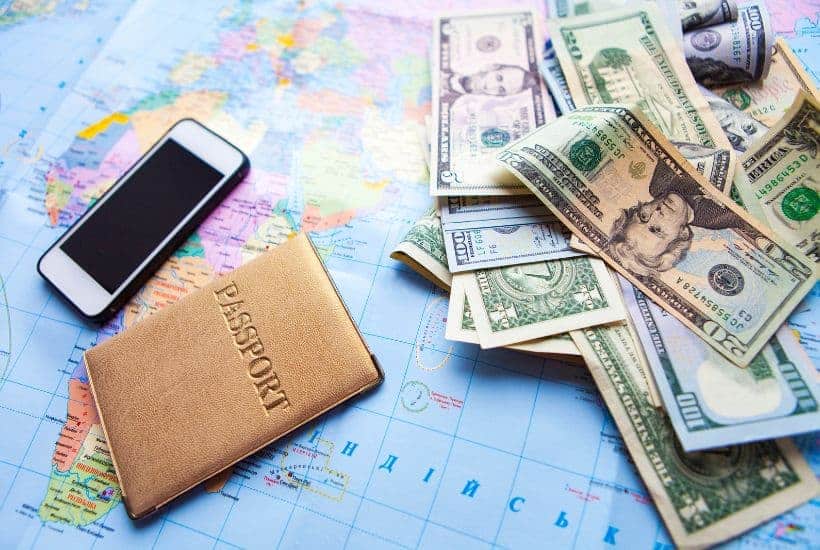Introduction to Travel Savings
Excitement soars at the thought of traversing the globe, sinking one’s toes into unfamiliar sands, or navigating the bustling streets of a city pulsating with life. Yet, the financial aspect of it can often feel like a grounding force. Fortunately, the modern traveler has many online tools and platforms at their fingertips that, when used judiciously, can unveil a world of savings. Leading platforms like Priceline serve not just as gateways to destination dreams but also as treasure troves of deals and discounts that help make travel more accessible. True cost-efficiency in travel is grasped not by simply slashing budgets but by understanding the intricate dance of supply, demand, and timing in the travel industry.
Timing is Everything: The Best Times to Book
Knowing when to book a trip can be as important as deciding where to go. Websites like Priceline can be beneficial in finding good deals, making it easy for travelers to compare prices and book their trips at the most reasonable times. Savvy travelers know that the timing of their booking can significantly impact the prices of flights and hotels. Prices are lower during off-peak times, usually after the busy summer or before the holiday season starts. However, these savings are seasonal and may depend on the day of the week. Airlines often start sales earlier in the week, with Tuesday afternoons being an excellent time to look for deals. It has also been observed that traveling on less popular days, such as Tuesdays and Wednesdays, can result in lower fares compared to traveling on weekends.
Hotel Deals: Scoring Discounts on Accommodations
Accommodations usually take up a significant portion of the travel budget. However, those willing to put time and effort into researching can find great deals. Choosing unconventional lodging options such as vacation rentals, hostels, or even monastic stays can offer unique experiences at a much lower cost than traditional hotels. It’s also important to consider the location and opt for places slightly further away from the principal attractions to save money, provided ample public transportation or walkable options are available.
Car Rentals: Navigating the Best Rates
Renting a car allows travelers to explore at their own pace, but the costs can ramp up without careful planning. Book as far as possible to unlock the best deals in car rentals, particularly during peak travel seasons. While price comparison sites can provide a general overview of the rates, checking the rental companies’ websites directly may reveal exclusive online offers or discounts for members of specific organizations. Look for promotions that waive the second driver fee or offer free upgrades. Always remember to factor in the additional costs, such as insurance and gasoline, that can impact your budget.
Package Deals Versus A La Carte: What’s Best?
Travel bundles that include flights, hotels, and car rentals are tempting for their convenience and potential savings. However, they can sometimes lack flexibility. On the other hand, building your trip piece by piece allows for a customized experience. Regarding airlines that offer a la carte service pricing, there are advantages to choosing what you need. This can help keep costs down. However, weighing the pros and cons of both approaches is essential. Consider time, money, and personal travel goals before deciding. By doing thorough research, having patience, and understanding the fine print, you can save money whether you choose an all-in-one deal or a tailored itinerary.
Utilizing Travel Apps for Extra Savings
Frequent travelers are increasingly turning to their smartphones as a portal to savings on the go. The rise of travel applications caters to last-minute accommodations, spontaneous flight bookings, and unexpected car rental opportunities. Apps predict future prices and advise users on the optimal time to book, potentially saving hundreds on airfare alone. The key to using these apps effectively lies in their timely push notifications and exclusive app-only deals unavailable elsewhere. Modern travel is increasingly about the merger of convenience and frugality, both of which can be accessed through one’s phone.
The Traveler’s Toolkit: Websites That Help You Save
Armed with a virtual toolkit, the informed traveler can enhance the cost-effectiveness of each journey. Websites with strong communities built on traveler reviews reveal the reality behind the glossy brochure images, allowing you to assess whether that cut-rate hotel deal is a bargain or a prelude to disappointment.
Travel Insurance: Yes or No?
The decision to purchase travel insurance is nuanced, often hinging on several variables unique to each trip. Insurance should not be viewed as an unnecessary upsell but rather as a safety net that can especially come in handy in cases of international travel, where health care costs could be astronomical, or on adventure trips where the likelihood of injury is higher. In addition, some policies cover trip cancellations or interruptions, protecting the investment made in non-refundable bookings. Weighing the potential loss without protection against the cost of the premium is a budget-savvy move that cautious travelers consider during trip planning.
Credit Card Points and Travel Rewards
The judicious accumulation and redemption of credit card points and travel rewards can become a goldmine of savings for future adventures. Knowing which cards offer the best return on travel purchases, taking advantage of sign-up bonuses, and staying informed about partnership deals can result in complimentary flights, hotel stays, or car rentals. Clever travelers often plan their credit card use as meticulously as their itineraries, ensuring every swipe brings them one step closer to their next destination without racking up unnecessary debts.
Mindful Travel: Balancing Budget and Experience
Striking a balance between frugality and enriching travel experiences is both an art and a science. It is not just about finding the cheapest option but opting for value that enhances the journey—a cooking class that teaches a local recipe to cherish for years to come or a slightly more expensive direct flight that saves precious vacation time. Mindful travel means engaging with local economies respectfully and mutually beneficially, such as dining at a family-owned restaurant or choosing eco-friendly tours.




No Comment